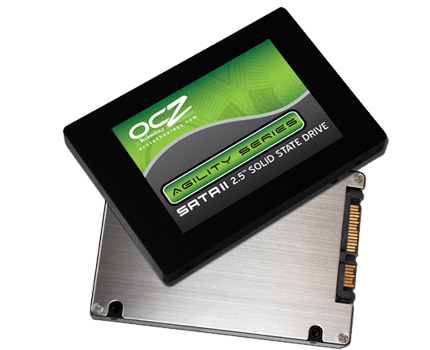Solid state drives promise all sorts of performance goodness, and though we'd all love to get our hands on one, their pricing is such that they're still out of reach for the majority.
Speaking to OCZ at last week's COMPUTEX, we were introduced to the Colossus SSD, a 1TB monster claiming read and write speeds of up to 265MB/s. Undoubtedly impressive, but in the knowledge that it's outrageously pricey, our question to OCZ was this: "your solid-state solutions continue to get bigger and quicker, but what about something that's smaller, cheaper, stutter free and equipped with decent performance?"
If you've been asking the same question, here's your answer. It's called the OCZ Agility Series, and it promises to provide the "performance and reliability of SSDs at less price per gigabyte than other high speed offerings currently on the market".

The Agility Series will be available in 30GB, 60GB and 120GB capacities - all ample for a system drive, we reckon - and comes equipped with a 64MB onboard cache. OCZ's using an Indilinx controller that should provide stutter-free operation, and it claims to have lowered the cost of the drives by using cheaper NAND flash memory.
Unfortunately for performance fiends, the use of cheaper flash memory will have a knock on effect on read and write speeds. OCZ lists the maximum performance of each Agility Series drive as follows:
30GB (part number OCZSSD2-1AGT30G) - read speed up to 185MB/s, write speed up to 100MB/s
60GB (part number OCZSSD2-1AGT60G) - read speed up to 230MB/s, write speed up to 135MB/s
100GB (part number OCZSSD2-1AGT30G) - read speed up to 230MB/s, write speed up to 135MB/s
Not the quickest we've ever seen, of course, but still potent enough. The all-important factor will be pricing, and though OCZ's yet to mention any figures, the 60GB drive could well be a promising solution if the price is right.
We'll bring you pricing information as soon as we have it, in the meantime, how much would you be willing to pay for a decent mainstream SSD? Share your thoughts in the HEXUS.community forums.













